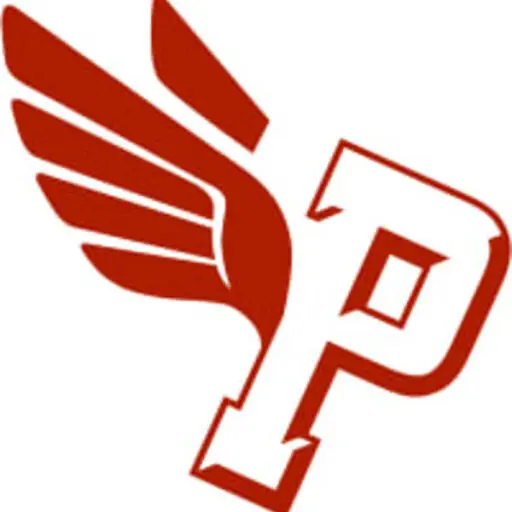HEALTH INSURANCE / MEDICLAIM POLICIES
What is covered by a health policy ? What is not covered in a Health Insurance policy ?

PLAN YOUR MEDICAL INSURANCE
No one should have to choose between medicine and other necessities. No one should have to use the emergency room every time a child gets sick. And no one should have to live in constant fear that a medical problem will become a financial crisis. – Brad Henry
PLAN YOUR HEALTH INSURANCE PRUDENTLY :
MEDICAL INSURANCE – Basics
What is covered under Health Insurance Policy ?
A Medical Insurance Policy would normally cover expenses incurred under the following heads in respect of each insured person subject to the overall ceiling of sum insured
a. Room, Boarding expenses
b. Nursing expenses
c. Fees of surgeon, anesthetist, physician, consultants, specialists
d. Anesthesia, blood, oxygen, operation theatre charges, surgical appliances, medicines, drugs, diagnostic materials, X-ray, Dialysis, chemotherapy, Radio therapy, cost of pace maker, Artificial limbs, cost or organs and similar expenses.
e. Ambulance charges
Sum InsuredThe Sum Insured may have a maximum amount for each of the insured under the policy or cumulative for all the insured or a fixed amount to be paid out on particular type of disease or surgery needed or affixed amount per day for the period of hospitalization.
Pre and post hospitalization expenses
Expenses incurred during a certain number of days prior to hospitalization and post hospitalization expenses for a specified period from the date of discharge may be considered as part of the claim provided the expenses relate to the disease / sickness.
Cashless FacilityInsurance companies have tie-up arrangements with a network of hospitals in the country. If policyholder takes treatment in any of the net work hospitals, there is no need for the insured person to pay hospital bills. The Insurance Company, through its Third Party Administrator (TPA) will arrange direct payment to the Hospital. Expenses beyond sub limits prescribed by the policy or items not covered under the policy have to be settled by the insured direct to the Hospital. The insured can take treatment in a non-listed hospital in which case he has to pay the bills first and then seek reimbursement from Insurance Co. There will be no cashless facility applicable here.
For the list of TPA approved by IRDAI , CLICK HERE
Additional Benefits and other RidersInsurance companies offer various other benefits like “ Health Checkup “. There are also policies that give benefits like “Hospital Cash”, “Critical Illness Benefits”, “Surgical Expense Benefits” etc. These policies can either be taken separately or in addition to the hospitalization policy. A few companies have come out with products in the nature of Top Up policies to meet the actual expenses over and above the limit available in the basic health policy.
The actual exclusions may vary
FLOATER POLICIES
Family Floater is one single policy that takes care of the hospitalization expenses of entire family. The policy has one single sum insured, which can be utilized by any/all insured persons in any proportion or amount subject to maximum of overall limit of the policy sum insured. Quite. Family floater plans are better than buying separate individual policies all
TAX BENEFIT UNDER SECTION 80D OF INCOME TAX ACT
Deduction allowed on Medicliam Policies under 80 D is Rs. 50,000/- for senior citizens and up to Rs. 25,000/- for others from the financial year 2018-19 . For senior citizens , if no insurance amount is paid , hospital expenditure up to Rs 50,000 is allowed . An assessee can claim additional Rs 50,000 for his / her parents if they are senior citizens and Rs 25,000 in other cases . Overall claim cannot exceed Rs 1,00,000 . All payments should have been made in any mode other than cash . Cost of preventive health check up up to Rs 5,000 can be claimed within the overall limit and it could have been made in cash also .
ISSUERS OF HEALTH COVERS
Mediclaim policies are issued by specialized Health / Medical Insurance companies , Life Insurers as well as General Insurers . To get the list and visit their websites , Click Here
What is not generally covered in your Health insurance Policy ?
What is not covered in a policy ?
We would have bought medical insurance by paying substantial premium . When we submit our claims , we would be shocked to learn that our claim is rejected or substantially reduced as the policy doesn’t cover the illness / treatment we have undergone . Hence we should carefully go through the policy document while / before purchasing an insurance to know what the health insurance covers and what is not covered .
Each policy has its own sets of inclusions and exclusions and we give below some general exclusions which are normally covered in an insurance policy . But carefully study the policy document while purchasing the health insurance .
General Exclusions :
a. All pre-existing diseases . But some policies allow after certain lapse pf period called waiting period which is between 24 to 60 months . Many policies will also not cover the new ailments arising out of pre-existing conditions . Even if they allow , some policies would have limited the cover to certain percentage .
As per IRDAI GUIDELINES Pre-existing Disease means any condition, ailment, injury or disease:
a) That is/are diagnosed by a physician within 48 months prior to the effective date of the policy issued by the insurer or its reinstatement orb) For which medical advice or treatment was recommended by, or received from, a physician within 48 months prior to the effective date of the policy issued by the insurer or its reinstatement.
b. Under first year policy, any claim during the first 30 days from date of cover, for sickness / disease. This is not applicable for accidental injury claims.
c. During first year of cover – cataract, Benign prosthetic hypertrophy, Hysterectomy for Menorrhagia or Fibromyoma, Hernia, Hydrocele, Congenital Internal diseases, Fistula in anus, piles, sinusitis and related disorders. Some policies do not allow treatment for certain diseases like cataract for a period of 24 months to 48 months , even when it was not a pre-existing condition.
d. Circumcision unless for treatment of a disease
e. Cost of specs, contact lenses, hearing aids
f. Dental treatment / surgery unless requiring hospitalization
g. Convalescence, general debility, congenital external defects, V.D., intentional self-injury, use of intoxicating drugs / alcohol, AIDS, Expenses for Diagnosis, X-ray or lab tests not consistent with the disease requiring hospitalization.
h. Treatment relating to pregnancy or child birth including cesarean section
i. Naturopathy treatment.
j. Cosmetic procedure / Fertility treatment
k. Off-label medicines
l. Health issues on account of war , radiations etc .
Further some policy require prior authorization from them before hospitalizations for certain types of ailments .
Hence as a precaution , go through the policy while buying a health policy and follow the procedure / terms & conditions while undergoing a treatment and making a claim . Normally insurance companies offer a free- look period of say 15 days after issue of the policy . If you are not satisfied with the policy terms , you may surrender the policy and look for a fresh policy .
How to File a Complaint Against Your Insurance Company ?
Learn the step-by-step process of lodging a complaint against insurance companies. This video covers direct company complaints, escalation to IRDAI, common insurance issues, and tips for effective complaint filing. Understand your rights as a policyholder and how to ensure your concerns are properly addressed
CASHLESS EVERYWHERE SCHEME :
TERMS & CONDITIONS FOR EXTENDING ” CASHLESS EVERYWHERE ” SCHEME :
UPDATE DATED 28.06.2024 : Now the cashless everywhere scheme has already been launched by many insurance companies like National Insurance Company , United India Insurance company , Reliance General insurance company , HDFC Ergo Insurance company , ICICI Lombard , Bajaj Allianz , Tata AIG etc . You may check with your insurance company / TPA for any clarifications .
Dated 28.01.2024 : In order to ease the burden of policyholders who get treated in a hospital not in the network of the Insurance Company, the General Insurance Council, in consultation with all the General and Health Insurance Companies, is launching the “Cashless Everywhere” initiative. Under Cashless Everywhere, the policyholder can get treated in any hospital they choose, and a cashless facility will be available even if such a hospital is not in the network of the Insurance Company. For availing the facility , the policyholders have to comply with the following terms & conditions generally :
1. For Planned Admission, the assigned TPA should receive the Intimation about the Planned Admission at least 48 hours prior to the proposed date of admission. The Intimation should be sent by email to the TPA mentioned in your policy.
2. For Emergency Admission, the assigned TPA should receive the Request for Cashless Facility in the Prescribed Form at least within 48 hours after the time of admission.3. The Hospital where the treatment is to be taken should meet the requirements of the Policy T & C as well as the insurance Company’s internal guidelines.
4. Cashless Facility would be available only if the treatment is found admissible under the terms of the Policy.5. The Request for Cashless Facility (in the Prescribed format) should be completed and signed by the Insured Person and the Hospital and submitted with all the requisite documents including a copy of the Insured Person’s Identification.
6. The Request for Cashless Facility should be sent to TPA by email as mentioned in the policy. 7. Hospitals which are not in the Company’s Network should provide the Letter of Consent to extend Cashless Facility.
8. Insurance Companies reserves the right to reject the request for Cashless Facility. If Cashless facility is denied, the Customer may submit the papers for claiming under reimbursement basis on completion of the treatment, and admissibility of the claim would be subject to the terms of the Policy.9. In case of any query , one may contact the TPA mentioned in the policy.
10 . Any other condition may be stipulated by a specific insurance company
With the Best Compliments from

DISCLAIMER
Use of the information at this site www.plannprogress.com is at one’s own risk. We do not offer to sell or solicit to buy any financial instruments including Deposits , Loans whether short term or otherwise , Mortgages , Stocks , Insurance or Mutual Funds .This site does not offer to sell or solicitation to buy any securities and we will not be liable for any losses incurred or investment(s) made or decisions taken/or not taken based on the information provided herein. Information contained herein are purely for educational purposes and does not constitute a personal recommendation or take into account the particular investment objectives, financial situations, or needs of individual investors. Before acting on any recommendation, investors should consider whether it is suitable for their particular circumstances and, if necessary, seek an independent professional advice.
Entry to this site is free of charge and we do not charge any fees what so ever . No need for registration for viewing the site . All content and information is provided on an ‘As Is’ basis by us. Information herein is believed to be reliable, but does not warrant its completeness or accuracy and expressly disclaims all warranties and conditions of any kind, whether express or implied. As a condition to accessing http://www.plannprogress.com content and website, you agree to our Terms and Conditions of Use, Privacy policy & Disclaimer available on the links . The performance data quoted represents past performance and does not guarantee future results.
Articles/ Pages in this site contain advertisements and links to various third party sites / blogs as we have found articles therein interesting and useful and we believe reliable . Those links sites and advertisements may contain offer of sales or services of various kinds including financial services . We accept no responsibility for the accuracy , correctness and/or completeness of any information contained therein as we have not independently verified. The links and third party advertisements are governed by the privacy policy of those third party sites / blogs. We do not warrant or guarantee for any services or sales utilized therein . This site expressly disclaims all warranties and conditions of any kind, whether express or implied. However readers are advised to exercise their discretion in utilising / following any advice contained therein or utilizing any services or accepting their sales or any other offers and we do not take any responsibility what so ever.
The site is governed by Indian Laws and comes within the jurisdiction of courts in Mysuru , Karnataka , India
Contact Information : The site www.plannprogress.com is owned and operated by Mr . Manjunathan B.N. , No 37, 5thBlock , Madhuvana Layout , Sriramapura 2nd stage , Mysuru 570023 , Karnataka , India and can be contacted at email : info@plannprogress.com
Copyright © PlannProgress – All Rights are Reserved | Powered by PixelFlare
This website uses cookies to provide necessary site functionality and to improve your experience. By using this website, you agree to our use of cookies.






